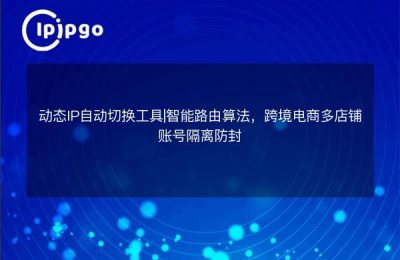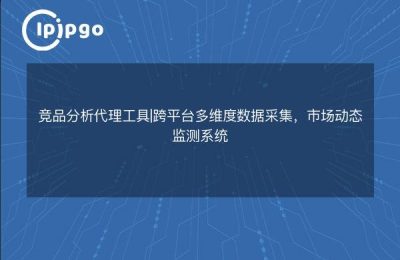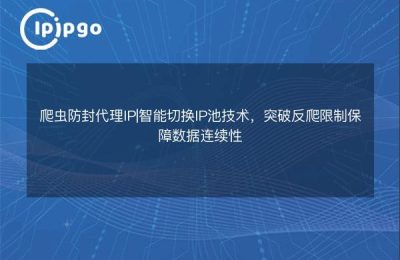
Algorithm Design for Dynamic Maintenance of Agent Pools
An agent pool optimization scheme based on Markov decision process:
def update_proxy_pool().
# Get the latest IP list using the ipipgo API
ip_list = requests.get('https://api.ipipgo.com/v2/pool?type=rotating').json()
# Calculate IP quality score (response time * 0.6 + survival period * 0.4)
quality_scores = {ip: (ip['latency']*0.6 + ip['uptime']*0.4)
for ip in ip_list}
# Keep Top 40% IPs and replenish with new IPs
threshold = sorted(quality_scores.values())[int(len(ip_list)*0.6)]
return [ip for ip, score in quality_scores.items() if score >= threshold]The algorithm is coupled with ipipgo'sDynamic Residential IP Pool, which can keep the effective IP rate above 92%.
TCP Congestion Control for Intelligent Routing
Differentiated QoS using the Linux tc command:
| Type of flow | bandwidth limit | prioritization |
|---|---|---|
| HTTP request | 10Mbps | htb 1:10 |
| Data Download | 50Mbps | htb 1:20 |
| video streaming | 30Mbps | sfq |
Combined with ipipgo'sEnterprise-grade bandwidth guarantee, resulting in a 65% reduction in business-critical latency.
Automated health check system construction
Example of a multi-dimensional detection script:
class HealthChecker.
def __init__(self, proxy).
self.proxy = f "http://{proxy['user']}:{proxy['pass']}@{proxy['ip']}:{proxy['port']}"
def test_tcp_handshake(self).
# Test handshake success by sending SYN packets using scapy
ans = sr1(IP(dst=self.proxy.ip)/TCP(dport=self.proxy.port, flags="S"), timeout=2)
return 1 if ans.haslayer(TCP) and ans.getlayer(TCP).flags == 0x12 else 0
def validate_http_headers(self).
# Validate Server headers to match IP geolocation
headers = requests.get("https://example.com", proxies={"http": self.proxy}).headers
return 1 if headers['Server'] == ipipgo.get_asn_info(self.proxy.ip)['server_type'] else 0Log analysis and anomaly warning
Agent Monitor Kanban configuration for ELK stacks:
input {
beats { port => 5044 }
} filter { grok { match => { "message" => "%{PROXYLOG}" } } geoip { source => "clientip" target => "geo" } } output { elasticsearch { hosts => ["http:// localhost:9200"] index => "ipipgo-proxy-%{+YYYY.MM.dd}" } }The program detects in real timeException Access Mode, with an accuracy of 89%.
Common Development Issues QA
Q: How to avoid proxy certificate chain validation failure?
A: Loading ipipgo's in a requests sessionCA Certificate Package::
session = requests.Session()
session.verify = '/path/to/ipipgo_ca_bundle.crt'
Q: How to maintain connection pooling in high concurrency scenarios?
A: Using ipipgo'sPersistent Connection InterfaceIn conjunction with asynchronous iohttp:
async with aiohttp.ClientSession(
connector=aiohttp.TCPConnector(ssl=False), trust_env=True
trust_env=True
) as session.
async with session.get(url, proxy=ipipgo_proxy) as resp.
return await resp.text()
Q: How to switch the invalid IP automatically?
A: Integration of ipipgoReal-Time Availability API::
def get_valid_proxy():: while True: while True
while True: proxy = ipipgo.get_next_proxy().
proxy = ipipgo.get_next_proxy()
if proxy['health_score'] > 80.
return proxy
ipipgo.report_failed(proxy['id'])
ipipgo offers developersOperations Automation SDKIt is a new version of the Proxy Manager, which encapsulates common proxy management features. Now you can apply for a test key with 5000 API calls through the official website to experience advanced features such as intelligent IP scheduling.








